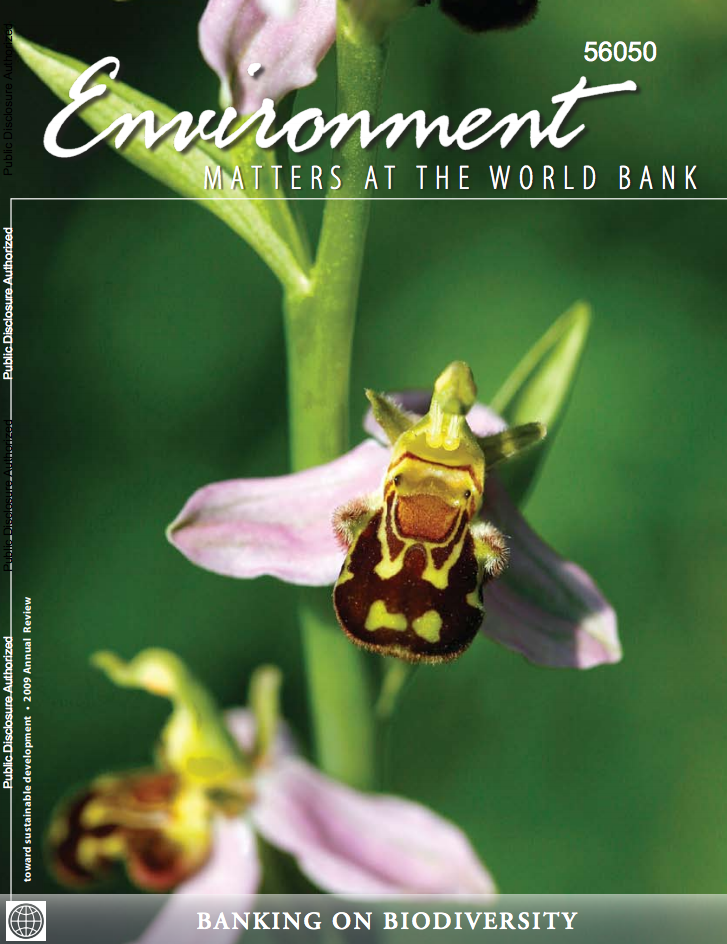The World Bank is a vital source of financial and technical assistance to developing countries around the world. We are not a bank in the ordinary sense but a unique partnership to reduce poverty and support development. The World Bank Group has two ambitious goals: End extreme poverty within a generation and boost shared prosperity.
- To end extreme poverty, the Bank's goal is to decrease the percentage of people living on less than $1.25 a day to no more than 3% by 2030.
- To promote shared prosperity, the goal is to promote income growth of the bottom 40% of the population in each country.
The World Bank Group comprises five institutions managed by their member countries.
The World Bank Group and Land: Working to protect the rights of existing land users and to help secure benefits for smallholder farmers
The World Bank (IBRD and IDA) interacts primarily with governments to increase agricultural productivity, strengthen land tenure policies and improve land governance. More than 90% of the World Bank’s agriculture portfolio focuses on the productivity and access to markets by small holder farmers. Ten percent of our projects focus on the governance of land tenure.
Similarly, investments by the International Finance Corporation (IFC), the World Bank Group’s private sector arm, including those in larger scale enterprises, overwhelmingly support smallholder farmers through improved access to finance, inputs and markets, and as direct suppliers. IFC invests in environmentally and socially sustainable private enterprises in all parts of the value chain (inputs such as irrigation and fertilizers, primary production, processing, transport and storage, traders, and risk management facilities including weather/crop insurance, warehouse financing, etc
For more information, visit the World Bank Group and land and food security (https://www.worldbank.org/en/topic/agriculture/brief/land-and-food-security1
Resources
Displaying 4246 - 4250 of 4907Lessons from European Union Policies for Regional Development
Regional disparities present an ever
present development challenge in most countries, especially
those with large geographic areas under their jurisdiction.
A neglect of these inequities may create the potential for
disunity and, in extreme cases, for disintegration. In view
of this, most countries actively pursue policies with a view
to helping lagging regions catch up with faster growing
regions. These policies have at best a mixed record of
Environment Matters at the World Bank, 2009 Annual Review : Banking on Biodiversity
This issue of environment matters
celebrates the 2010 international year of biodiversity and
describes some of the challenges and opportunities in
protecting biodiversity for the benefit of humankind. From
the world's highest mountain ranges to the lowland
plains, and from the great oceans and coastal wetlands to
agricultural landscapes, nations and communities rely on the
bounty and services of natural ecosystems. Biological
Non-traditional Crops, Traditional Constraints : Long-Term Welfare Impacts of Export Crop Adoption among Guatemalan Smallholders
This study documents the long-term
welfare effects of household non-traditional agricultural
export (NTX) adoption. The analysis uses a unique panel
dataset, which spans the period 1985-2005, and employs
difference-in-differences estimation to investigate the
long-term impact of non-traditional agricultural export
adoption on changes in household consumption status and
asset position in the Central Highlands of Guatemala. Given
Tiger Economies Under Threat : A
Comparative Analysis of Malaysia's Industrial Prospects
and Policy Options
The Southeast Asian Tigers feel
threatened. Even though their growth rates have remained
above the average for the world and also above the average
for developing countries, their economic performance falls
short of that in the first half of the 1990s. The underlying
worry is that it presages the beginning of a downward trend,
the harbingers of which are lower rates of investment,
persistently low rates of total factor productivity, and low
Restoring Balance :
Bangladesh's Rural Energy Realities
Bangladesh is one of the world's
poorest countries. Nearly 80 percent of the nation's
140 million people reside in rural areas; of these, 20
percent live in extreme poverty. Geographically, many
low-lying areas are vulnerable to severe flooding, while
other regions are prone to drought, erosion, and soil
salinity. Such an unfavorable agricultural landscape,
combined with mismanagement of natural resources and







